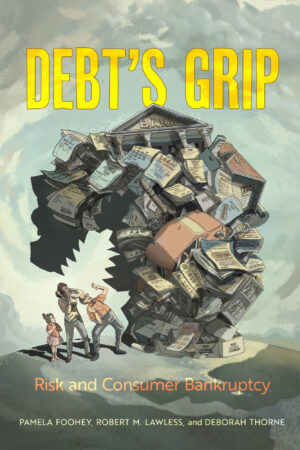Debt in the United States
Posted with permission from the University of Illinois School of Law

Over the almost 45 years the Consumer Bankruptcy Project has been collecting data, the landscape of debt in the United States has shifted significantly. Updating that work is Debt’s Grip: Risk and Consumer Bankruptcy a new book by Robert Lawless, Pamela Foohey, and Deborah Thorne tells the story of financial struggle in the United States in the words of bankruptcy filers themselves.
“It was time to document the many ways things have changed, but also the way things have not,” Lawless said. “One of the sad things is American households continue to struggle for many of the same reasons they did 35 years ago.”
Debt's Grip provides an update on the Consumer Bankruptcy Project, started by Teresa Sullivan, Elizabeth Warren, and Jay Westbrook. Their work, dating back to the 1980s, provided novel insight by combining bankruptcy court records and surveys that asked individuals to tell their story in their own words.
Lawless joined the Consumer Bankruptcy Project in 2001 and later became one of its principal investigators. Along with many student research assistants from the College of Law, Lawless, Foohey and Thorne have been doing continuous data collection for the project since 2013 and publishing in law reviews and sociology journals. This intensive effort, along with greater access to technology, has helped the group provide new insights into debt in the U.S and provided the foundation for Debt's Grip.
“We lean more into the demographics of bankruptcy in this book because the last book was written with data before the internet,” Lawless said. “There’s a lot more we know now about the demographics of who files bankruptcy…. We have a nationally representative picture of who files bankruptcy.”
This book is the first Lawless has written for a broader audience. As with textbooks, the goal of Debt's Grip is to share his expertise and teach the reader, but Lawless hopes this book can inform decision makers like lawyers, judges, other policy leaders in the field of bankruptcy.
“We put some context into what it means to live at the financial edge. People have stories of going without medicine, without food, or sacrifices to keep a car running so they can get to work or they can get their children to school. The book, I hope, details and lays out what that really means."
For more, listen to the University of Illinois School of Law's interview with Robert Lawless on their podcast.